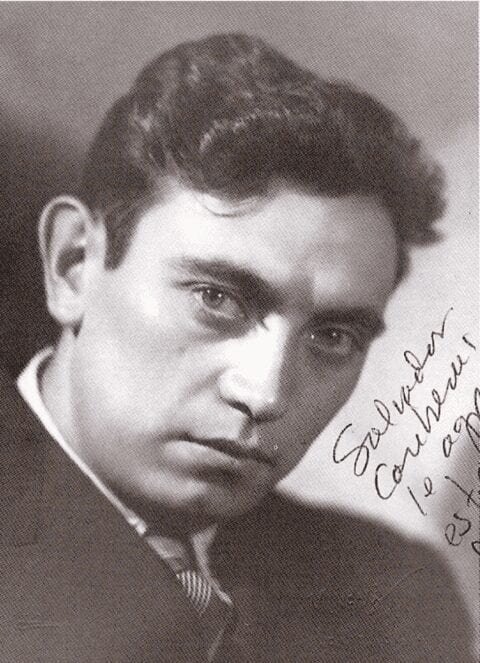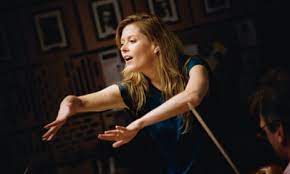By Daniel Hathaway
Barbara Hannigan is a conductor as well as a celebrated soprano. She brings her podium skills to Severance Music Center this week in a Cleveland Orchestra program featuring Richard Strauss’s Death and Transfiguration, and another soprano, Aphrodite Patoulidou, will take solo duties in Claude Vivier’s Lonely Child.
And Apollo’s Fire will spend two Nights in Venice, beginning this evening at The Temple-Tifereth Israel.
For details of these and other events, visit our Concert Listings.
CALL FOR SUBMISSIONS:
Local 4 Music Fund executive director Amber Rogers writes:
“In summer 2021, Local 4 launched an annual concert series featuring the works of female, regional, living composers. Now in its fourth season, we are proud to continue our work towards creating a more equitable regional arts community.
“She Scores is open to female-identifying and nonbinary composers who live or work in the states of OH, MI, KY, WV, PA, and IN. There is no cost to participate in She Scores, and it is open to students, emerging professional composers, and established professionals. There is no age limit or education requirement. Additional details and composition requirements are available here. Please share this information with your colleagues and students!”
TODAY’S ALMANAC:
by Jarret Hoffman
Today we begin in France and end in Mexico.

François also played the harpsichordist, and it is his works for that instrument that have made him most famous. His four collections of solo harpsichord music, numbering over 230 pieces, have been admired by and provided inspiration to such figures as J.S. Bach, Brahms, Ravel, and Thomas Adès.
Les Barricades Mystérieuses is one of the most popular pieces from those suites. For something a little different, listen to a version arranged for harpsichord and lute here, performed here by Jean Rondeau and Thomas Dunford.

When that class was dropped from the curriculum, the four composers formed the Grupo de Jóvenes Compositores (“Group of Young Composers”) almost as a show of protest, giving their first concert in 1935. Fortunately a journalist reviewing the concert came up with a snappier name: Grupo de los Cuatro, in the same vein as the Russian “Mighty Five” and the French Les Six.
Before turning to serialism in the mid-1960s — a decision that didn’t appeal to all of his fans — Contreras wrote in a unique brand of neoclassicism with an emphasis on counterpoint. A great example is the early String Quartet No. 2 (1936). You can follow along with the score while you listen to a performance by the Cuarteto Latinoamericano here.




